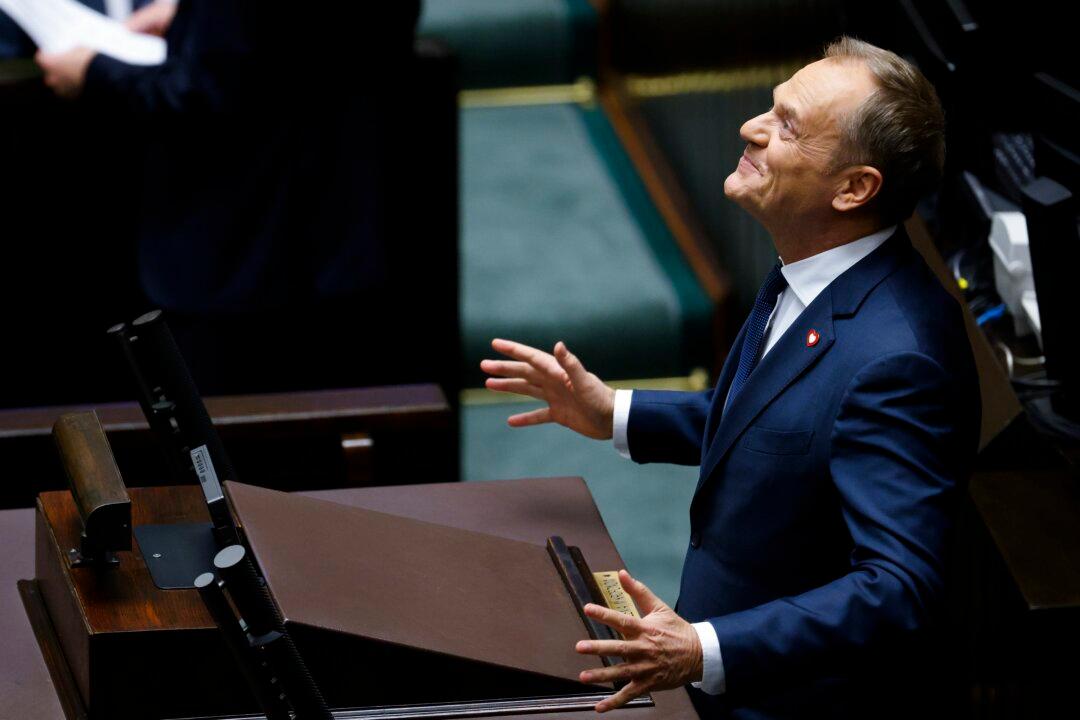After officially assuming the office of Poland’s prime minister, veteran politician Donald Tusk has reiterated his country’s support for Ukraine in its war with Russia.
Addressing parliament on Dec. 12, Mr. Tusk pledged to “loudly and decisively demand the full mobilization of the free world, the Western world, to help Ukraine in this war.”





